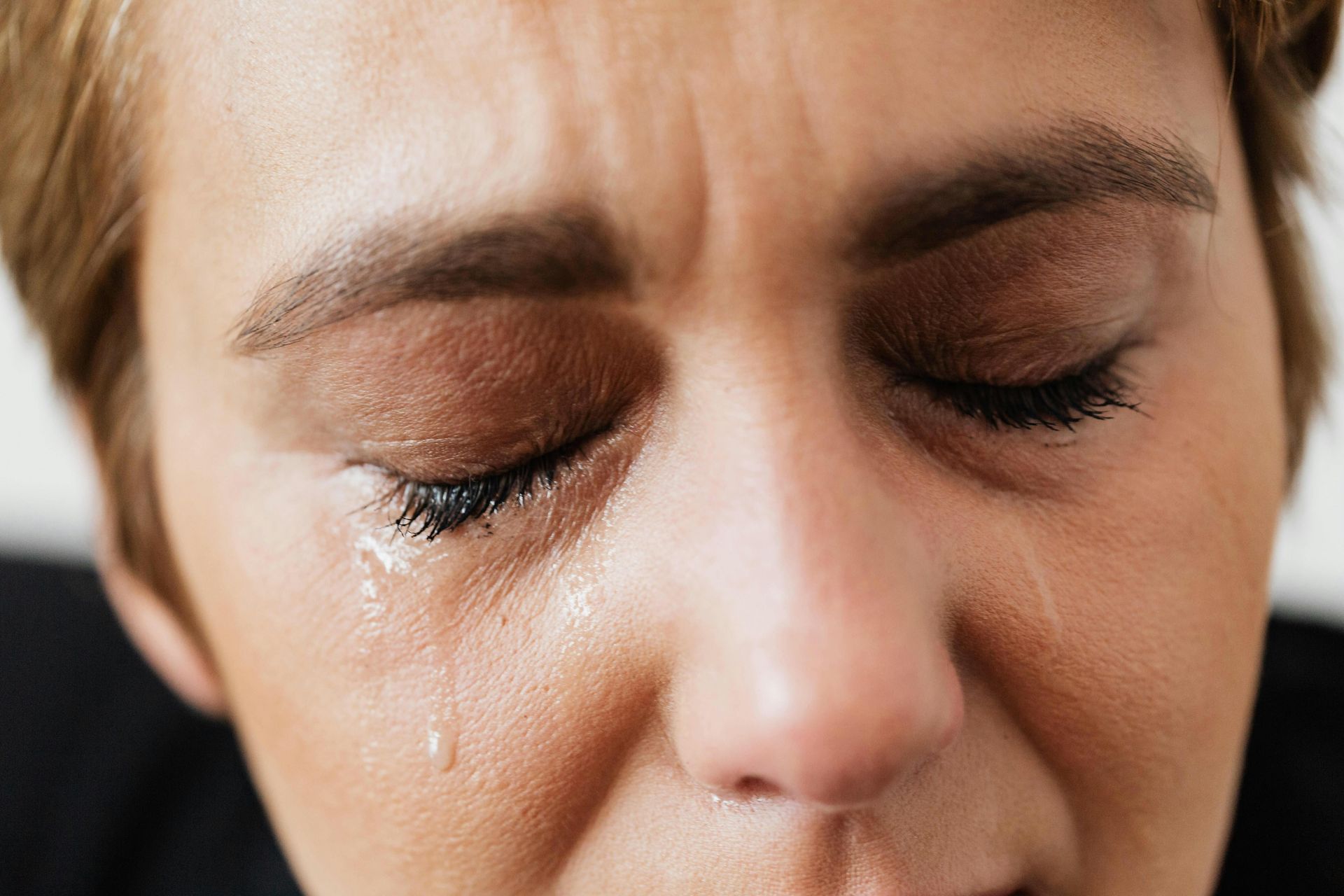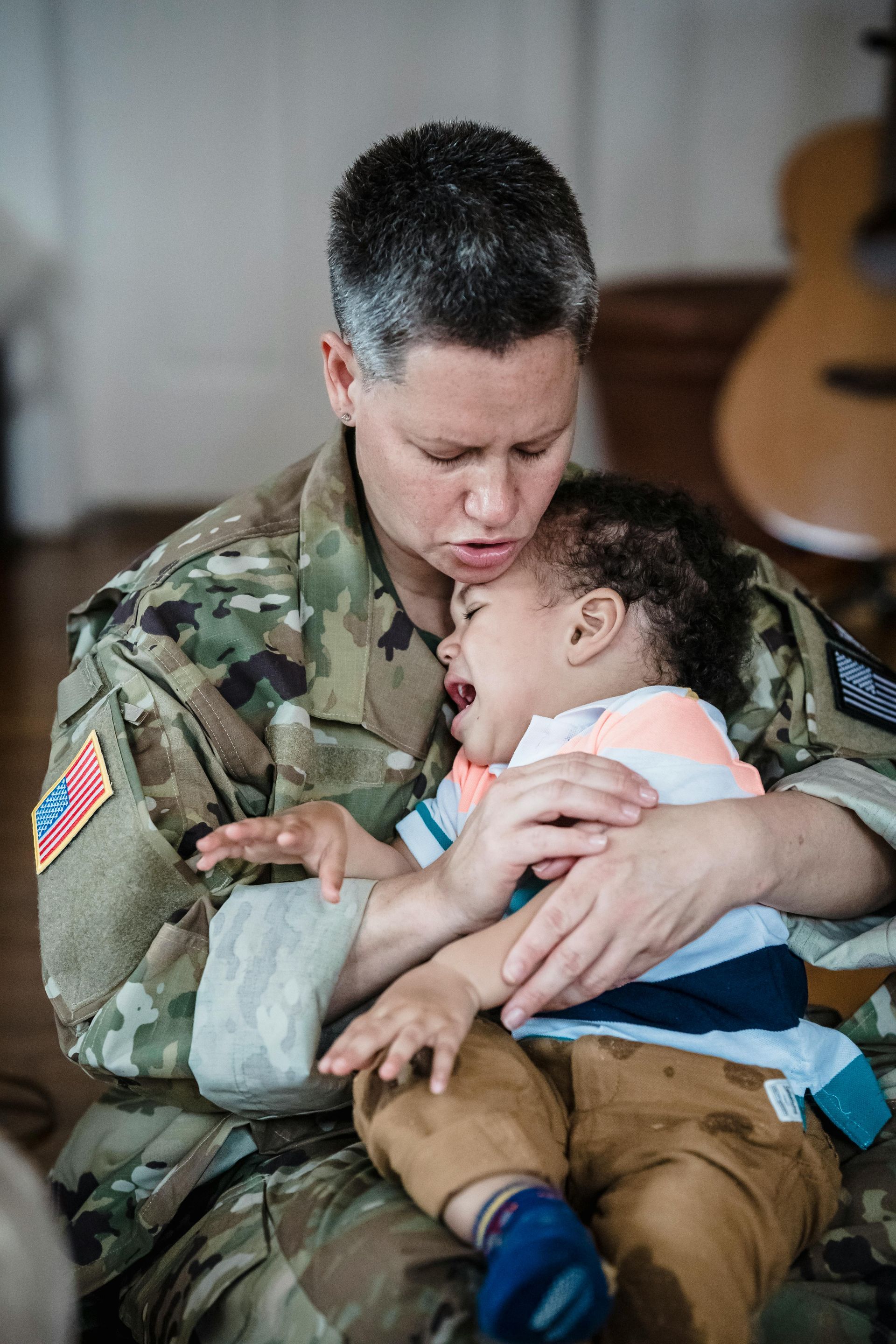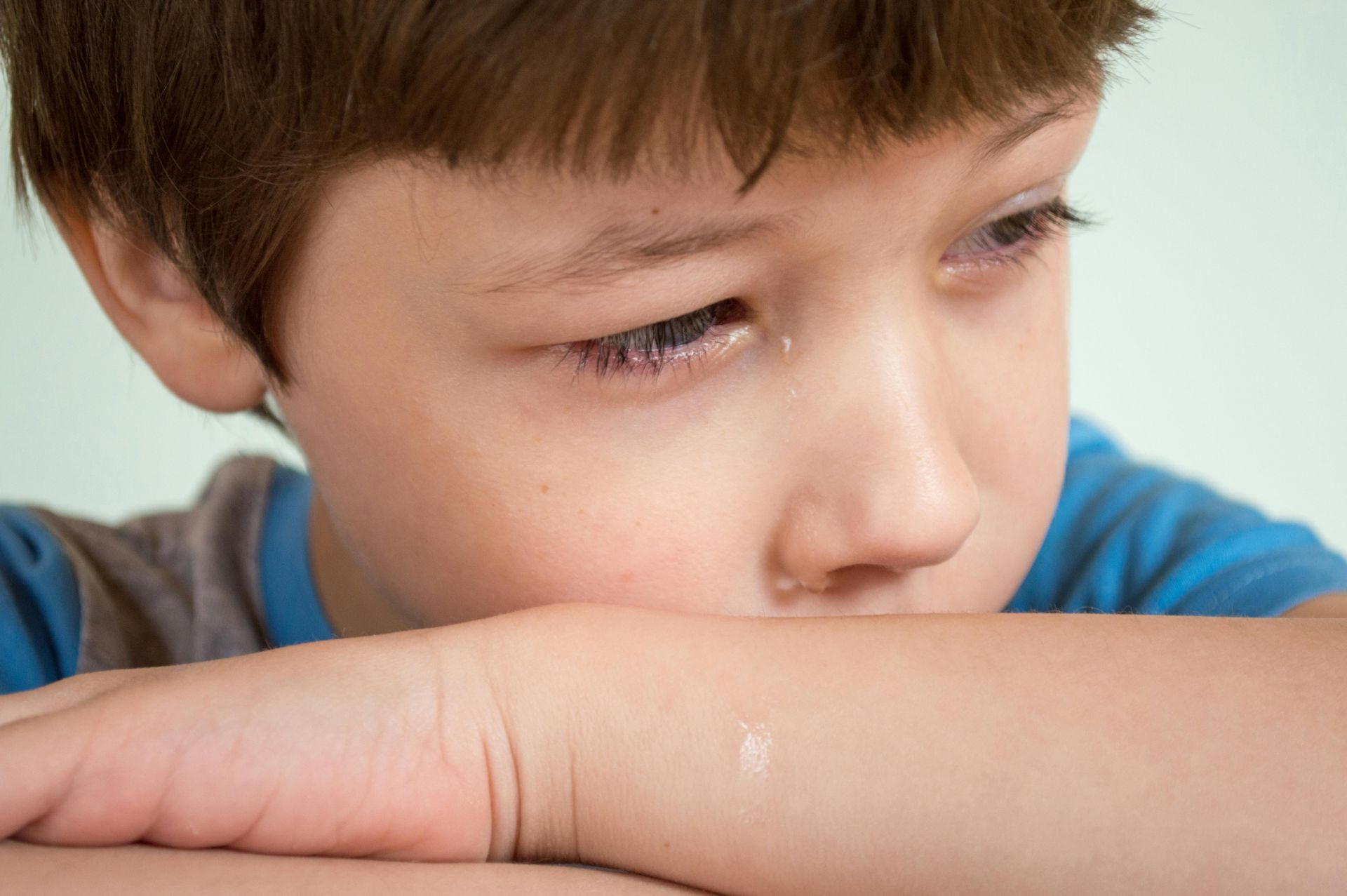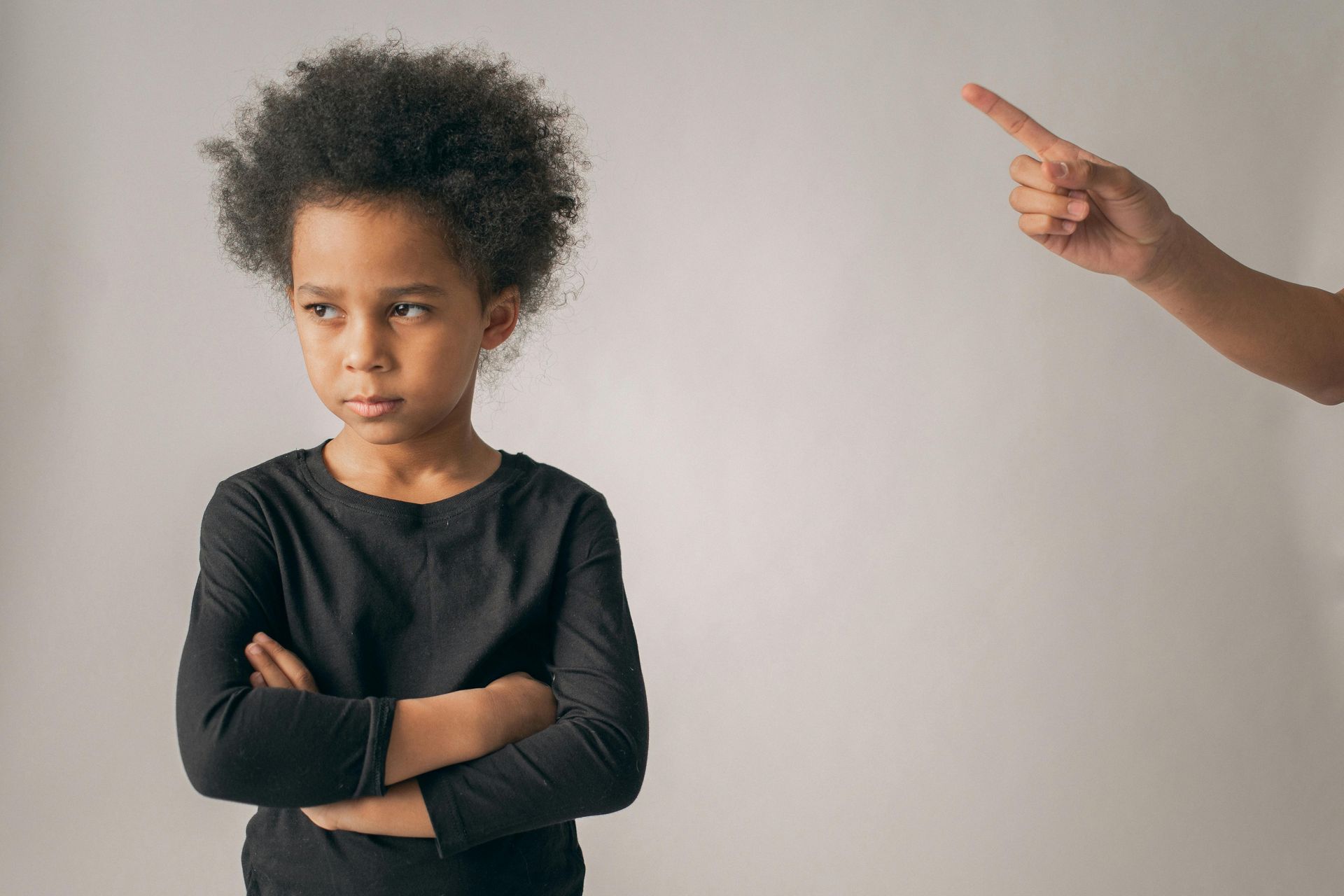TEACHING OUR CHILD WHAT LOVE IS
Love Begins With Us

Love Begins With Us
As parents, we are our child’s first teachers of love. Our child learns what love feels like, what it looks like, and what it sounds like through us. If love shows up as yelling, hitting, threatening, controlling, or lying, then that is what love will be to them. Those experiences will not feel strange. They will feel like home. Without even realizing it, our child may grow to seek those same dynamics in their friendships and relationships, pulled toward what is most familiar even when it causes harm.
If love shows up as patience, gentleness, honesty, respect, kindness, and care, then that is what love will be to them. Those qualities will feel like home. They will naturally look for relationships that reflect those same truths. They will expect love to be safe, steady, and respectful. They will carry a sense of worth within themselves that does not depend on control, fear, or performance.
Our Responsibility and Accountability
It is important to remember that no one makes you do it. No one makes you yell. No one makes you threaten. You are responsible for your choices. Your child’s behavior does not force you to act unlovingly. There may be times when your nervous system is overwhelmed, when exhaustion takes over, or when old trauma is triggered and you are unable to rise to the challenge of parenthood. Even in those moments, you are responsible for how you respond.
We are responsible for showing our child what love truly is. And when we fall short, we are accountable for making it right. Accountability does not mean shame. It means repair. It means telling our child, “You did not deserve that. I can do better,” and showing them how we plan to grow.
Parenting Out of Fear Versus Parenting in Love
I have often heard it argued: I am doing it out of love. I punish because I love them. I spank to get their attention and to teach them. I shame because I want them to behave better. It is the loving thing to do.
I want to say with compassion but also with clarity: this is terribly misguided. When we parent out of love in this way, we are not actually parenting in love. We are parenting in fear.
Fear tells us that if we do not control, punish, or threaten, then our child will turn out spoiled, irresponsible, or ungrateful. Fear whispers that our child must hurt now in order to be safe later. Let love speak louder than fear. Love says, I do not need to hurt you to guide you. I can be firm without being harsh. I can be strong without being cruel.
It is not truly love that leads us to spank, threaten, shame, or humiliate. Those come from fear. But it is love that leads us to empathy. It is love that helps us hold boundaries firmly and kindly. It is love that allows us to see and hear our child, to co-regulate with them, and to problem-solve together. Love is steady. Love is patient. Love connects.
When you do not know what to do, choose connection. You may not always get the details right, but you will know that you are choosing love. Let love be loud. Let it take the lead.
Are We Inherently Good or Bad?
This question matters, because you cannot build a foundation for your parenting without first deciding what you believe about human nature. Do you believe that children are inherently good, or do you believe they are inherently bad?
If you believe that children are born sinful, flawed, and corrupt at their core, then parenting becomes an effort to suppress what is broken and punish what is wrong. It becomes a constant battle to control, because you are working against a nature you view as bad.
But if you believe that children are inherently good, then parenting becomes an act of drawing that goodness out. With this belief, mistakes are not proof of corruption but opportunities to grow. Challenging behaviors are not evidence of sin but signals of unmet needs, underdeveloped skills, or pain that needs compassion.
Parts Work (a therapeutic practice that helps us understand the different parts of ourselves) teaches us that every human being carries the Self, the part of us that is calm, curious, compassionate, courageous, and connected. When we parent from the belief that our child is inherently good, we parent in a way that protects and nurtures this Self so that it can shine. We understand that difficult behavior is not the essence of who they are. We see past the defenses, the fear, and the immaturity, and we guide them back to their truest nature.
Children do not need to be broken down in order to become good. They need to be built up so that the goodness already inside them can flourish.
A Child Cannot Pull Water From an Empty Well
A child cannot pull water from an empty well. If they are lacking capacity, development, practice, knowledge, or skills, they cannot magically draw those things out of themselves. A child cannot source what they have not yet been given.
So what happens when they are expected to? They are forced to split from themselves in some way. They may cut off a part of who they are, suppress a part, silence a part, or bring a protective part online to cope. These survival strategies may help them get through the moment, but they do not address the underlying need.
This is where parents come in. We are the well. We are the source of water. We are the ones who can figure out and meet their needs by working with them. Our child cannot take from a well that is empty inside themselves, so we give water from ours. Even when it feels like they should know better, even when they seem perfectly capable, even when we are tired and worn out, we are still the well. Our role does not end when we are exhausted or when the learning seems slow.
When we know how to connect with our child, we discover that answers live inside that connection. Solutions for how to guide them, teach them, and meet their needs are not limited or rigid. They are infinite. Every child is different, every situation is different, and the possibilities for responding with love are endless.
If you cannot see the infinite solutions in front of you, it is not because they do not exist. It is because something is blocking you from your own creative force. Perhaps it is fear, anger, or exhaustion. Perhaps it is the belief that parenting must be about control, or that your child’s struggles reflect your own inadequacy. These beliefs cloud your vision and make the path narrow when it is, in reality, wide open. To parent with love is to clear away those blockages and return to connection. When you reconnect with yourself, you will see the limitless ways to reconnect with your child.
Connection vs. Coercion
This is why connection matters. Parenting in connection, rather than coercion and force, teaches a child to remain whole. When we use coercion through threats, manipulation, punishments or force, our child does not learn connection. Instead, they learn to disconnect. They learn to numb, to hide, to avoid, and to act out destructively.
Disconnection has long-term costs. A child who learns to disconnect may one day cope with pain through substance abuse, compulsive behaviors, or emotional suppression. Emotional suppression often becomes a root of physical health struggles such as autoimmune conditions, heart disease, and chronic weight gain. Disconnection can show up in risky behaviors, addictions, gambling, pornography, food, drugs, and alcohol.
Imagine a child crying after being told no. A parent who responds with coercion might snap, “Stop crying or you will go to your room.” The child may stop outwardly, but inside they will need pull water from an empty well. They learn that their feelings are unsafe, and they may disconnect to avoid rejection. A parent who responds with connection instead might kneel down and say, “I see how upset you are. It’s hard when you can’t have what you want. I am here with you.” The tears may still flow, but the child receives water from your well. They learn that emotions are safe, and that they can stay connected both to themselves and to the parent.
Building the Tower of Self-Esteem
Think of building your child’s self-esteem like building a tower. At the very top of the tower, we place self-love. We hand each block of the tower to our child in every response we give them, one block at a time. They add each block to the structure one by one by one. Day in and day out, we hand our child the blocks that build the structure where self-love is to be kept secure, accessible, and prominent. When we hand them strong and sturdy blocks, the tower grows strong and steady, and self-love can shine. When we hand them weak or defective blocks, or no block at all, the tower can teeter and collapse.
We want this tower to be strong and secure. We want our child to love themselves, care for and about themselves, and know their value and worth. When we love something, we take care of it. When we love ourselves, we do not reject, blame, or hate ourselves for not being someone else. We do not believe we must be someone better, someone easier, or someone who does not make our parents angry just to earn kindness.
When a child is told through actions and tone that they must figure out how to change on their own, they often learn to abandon themselves in order to be loved. They silence their needs. They reject who they are in order to stay connected to a parent. Deep down, this creates self-disgust and self-betrayal. On the other hand, they may fight tooth and nail against anything that tries to control them, coping with love in destructive ways.
The Messages That Shape the Child
Every interaction with our children communicates a message, whether spoken or unspoken. The way we respond to their emotions, behaviors, interests, and even their struggles shapes how they see themselves and the world around them. Children are always asking silent questions about their worth, their safety, and their belonging. Our role as parents is to answer those questions with clarity, love, and acceptance. The table below highlights common moments and the messages we want our children to receive.
In response to your child’s: Emotions
Your child’s question: Is it okay to feel like this?
The message we want them to receive: Emotions are not good or bad. I am safe to feel them all and I can choose how to respond.
In response to your child’s: Behaviors
Your child’s question: Am I bad?
The message we want them to receive: I am a good person. When I make a bad choice, I can learn and make better ones next time.
In response to your child’s: Interests
Your child’s question: Do my parents approve of what interests me?
The message we want them to receive: I am my own person.
In response to your child’s: Failures
Your child’s question: Do my failures make me a failure?
The message we want them to receive: I am enough.
In response to your child’s: Achievements
Your child’s question: Do my achievements define my parents’ self-worth?
The message we want them to receive: My achievements are my own.
In response to your child’s: Self-Expression
Your child’s question: Is it okay to be myself or will I disappoint my parents?
The message we want them to receive: I am lovable just the way I am.
These internalized messages matter far more than the words we merely say. You can tell a child every day that they are enough, but if your responses do not reflect it, the words will not settle into their hearts.
The Power of Repair
Even the strongest parent will sometimes hand their child a weak block. We lose patience, we say words we regret, or we act out of stress instead of love. These weak or broken blocks can feel like failures, but they do not have to remain that way.
In the Japanese tradition of Kintsugi, broken pottery is repaired with gold. The cracks are not hidden but highlighted, turning what was broken into something stronger and more beautiful than before. Repair in parenting works the same way. When we strengthen and beautify the weak blocks we hand our child, those blocks can become some of the most powerful in the entire tower. They show our child that love is not about perfection. Love grows. Love changes. Love takes responsibility for its impact and cares about others.
I will not purposely hand my child weak blocks. But when I do, I will choose to repair them with care, humility, and love. In doing so, I am teaching my child that love does not deny mistakes. Love acknowledges them and turns them into something that holds even greater beauty and strength.
Healing Ourselves in Order to Teach Love
The deeper work comes when we realize that many of us did not receive these messages in our own childhood. If you did not grow up hearing that you are enough, or that your failures do not define you, then it will take conscious effort to believe these truths for yourself. In order to hand your child strong and sturdy blocks, you may need to re-parent yourself alongside your child. Healing your own wounds and calming your own triggers creates the space for both of you to receive the gift of self-love.
Reflection Questions
- When I fall short and hand my child a weak block, how can I repair it in a way that strengthens and beautifies the relationship, rather than leaving the block broken?
- Do I parent more often out of connection and love or out of fear and coercion? How do my responses shape my child’s ability to connect or disconnect from themselves?
- When my child is struggling, do I expect them to pull water from an empty well, or do I step into my role as the well and help meet the need?
- What beliefs, fears, or limitations sometimes block me from seeing the infinite solutions that exist in front of me?
- How do I want my child to care for themselves, value themselves, and love themselves as they grow, and what daily responses from me will help them build that tower of self-esteem?










